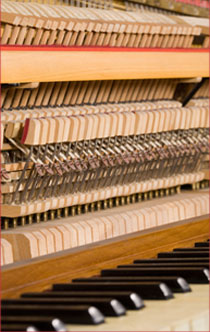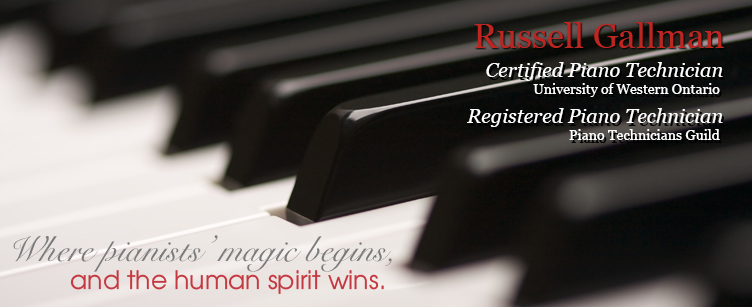Pre-Purchase Consultation
(770) 570-0356
contact@PrimePianoServices.com
Content under reconstruction as of 2021.
The content on this tab will be revised and retitled "Buying Tips & Rebuilding." My business has grown to an extent that Pre-Purchase Consultations have become too difficult to schedule on a timely basis.
DISCLAIMER: The content that I will be providing is not intended to be exhaustive with PhD level citations. Rather, it will be derived from my 15 years of serving customers' needs. To the best of my ability, I will not need to cite the intellectual property of others on this relabeled tab - Buying Tips & Considerations - as the insights provided will reflect my direct experiences in the field. Also, please note that I am not directly tied into the wholesale and retail sides of the piano industry.
Please pardon any typos or cryptic information. Those shortcomings will be addressed over time with successive editing efforts. I have already experienced times of inputting and typing only to discover that none of it was saved and non-recoverable. My current situation requires that I add and save my changes in small "bytes."
TIP #1: Pianos are more like cars than they are violins.
Treat your piano acquisition similarly to a vehicle purchase. How much research do you do before you pop on a new or used car purchase? And how often do you see people with strong emotional attachments to their vehicles? Of course, people develop strong affinities for their grandmother's vintage upright or the piano that they practiced on as a child. I get that. BUT old pianos in my world do not equate with a "pot of gold," or that rare find on some tv reality show. The reality in my world is that "old" is more akin to "money pit."
Like your car, your piano will have a serviceable life span and then it will be time to either rebuild it for sentimental reasons or because it has enough value where you can recover your costs, or it will be time to pay someone to haul it off to the landfill. As pianos age, they develop issues. Glue joints fail. Sound boards invert - go bad. Bug and mice infestations destroy felt and leather components. Rubber rots. Older plastics literally turn to powder. Strings and piano wire lose their elasticity. Are you aware that a single bass string may set you back over $250.00 to have a new one duplicated and installed when the old ones start popping like tooth picks? Are you aware that if a technician has to take your piano action home to put on the workbench for simple, messy repairs, that will easily start at a $400.00 repair ticket? I have seen older vintage models tank on my first tuning visit after the piano has been moved to it's new home.
So do yourself a favor. If you are considering the purchase of an older piano (say from 1902), go do a Google search on cars from that era. Are you certain that car parts and piano parts will still be available? I had a request from someone to look at a ancient square grand piano. Some of those pianos require 2 people to tune them - one person to strike the keys and one person to adjust the pitch. I have tuned 1 square grand on 2 different occasions in 15 years. I had no idea whom to point the customer to for assistance. So another thought: Are you willing to pay a technician their going hourly rate just to learn how to work on your vintage piano?
One final thought: Let's say you pick up a vintage piano as a Starter Piano for $150.00 or a free one on Face Book Market Place. You find a willing mover to bring it to your home for $300.00. And then you pay a technician $200.00 for your first tuning. You are out of pocket $650.00. And then the child says: "It doesn't sound as good as my teacher's piano." I have seen pianos in such awful shape - both in tone and feel - that it discouraged the child from even wanting to play. So, what are our options then?
You buy the best car you can with the budget you have available. You do the same thing with a piano. There is risk either way. I've seen kids fall in love with piano to such a point that parents are forced to upgrade, and I've seen parents resale their piano because their kids took more interest in soccer.
There is an upside to owning a vintage piano. Some of them make beautiful pieces of furniture. Some creative people turn them into desks, bookshelves, and dry bars. Sometimes a vintage piano continues to function. In which case, there is the benefit of having a historical, functional piece of furniture for an antique lover. They aren't all bad, but temper your perspective by looking at them as a grandparent.
TIP #2: My Personal Piano Picks
What pianos would I recommend? I am a huge fan of Steinways & Sons grand pianos. Artists reach for them over and over. Their upright pianos are not that great; so, shop first on the uprights for comparable products before making the transaction. But overall, they still have a good reputation for being a leader in the international grand piano manufacturers' world. Primarily, I am referring to brand new factory built models. In the Atlanta area, those sales are found at the Steinway Piano Galleries which is their main Alpharetta store location. In the rebuilt Steinway market, that's where it can get tricky. Our main local rebuilder that puts out consistent artisan level, artisan quality rebuilds and that is a reliable source to commission your Steinway & Sons core for a quality rebuild is Piano Works in Duluth, GA. I'm sure that Don and Sam would be glad to walk you through the process. But don't be surprised to be on a waiting list. I have no doubt that they have a solid backlog of pianos waiting for attention.
Also in the grand piano world are the Yamaha C-Series grands and the Shigeru Kawai grands. Yamaha is super consistent in their quality controls. THE MAIN THING ON BUYING YAMAHA IS TO BUY NEW, MADE IN JAPAN FOR THE US MARKET. This is a BIG deal. I will talk more about buying used pianos in another segment. Buying used Yamaha units can take you into the area we call The Gray Market, and that can have its hazards that buyers need to be concerned about. I will talk more about used Yamahas later. The C-Series is their conservatory line. It is very reliable. The local dealer who is authorized to sell new Yamahas is Piano Distributors, and they have several locations throughout the metro area.
In the Kawai line, their Shigeru models are a step up in quality and tonal performance. Those units are sold locally at England Piano and I have no doubt that Carder would be glad to fill you in on the details. The Shigeru models are a solid performer to Steinways and Yamahas. The Shigeru is built more for the artist. If you have a Masters Degree in Music or you are more on the PhD level, then Shigeru is a step above their KG-Series and RX-Series. I personally find the 5th and 6th octaves in the KG and RX line to be a serious challenge to stabilize during a tuning visit due to string friction, and fuzzy unisons drive artists nuts. So, I do not recommend the KG and RX line to serious artists. Instead, look more to Shigeru and inquire what the proper care for that piano should be.
For the upright piano world, my personal favs are brand new Yamaha U1 & U3 pianos (Piano Distributors), followed by the Kawai K-500 (England Piano), and the Schimmel Classic-M. If you need a more budget minded purchase, look into the Hailun and Seiler lines at Piano Works. As always, Yamaha has good quality controls both in uprights and grands. I have seen some dead bass strings show up on occasion in their uprights. When it comes to uprights, sometimes the quality can be hit and miss. I will talk more about buying from our local dealers in another segment.
Stay tuned. More tips will be added over the course of 2021. Thank you for visiting and thank you for your support!
What pianos would I recommend? I am a huge fan of Steinways & Sons grand pianos. Artists reach for them over and over. Their upright pianos are not that great; so, shop first on the uprights for comparable products before making the transaction. But overall, they still have a good reputation for being a leader in the international grand piano manufacturers' world. Primarily, I am referring to brand new factory built models. In the Atlanta area, those sales are found at the Steinway Piano Galleries which is their main Alpharetta store location. In the rebuilt Steinway market, that's where it can get tricky. Our main local rebuilder that puts out consistent artisan level, artisan quality rebuilds and that is a reliable source to commission your Steinway & Sons core for a quality rebuild is Piano Works in Duluth, GA. I'm sure that Don and Sam would be glad to walk you through the process. But don't be surprised to be on a waiting list. I have no doubt that they have a solid backlog of pianos waiting for attention.
Also in the grand piano world are the Yamaha C-Series grands and the Shigeru Kawai grands. Yamaha is super consistent in their quality controls. THE MAIN THING ON BUYING YAMAHA IS TO BUY NEW, MADE IN JAPAN FOR THE US MARKET. This is a BIG deal. I will talk more about buying used pianos in another segment. Buying used Yamaha units can take you into the area we call The Gray Market, and that can have its hazards that buyers need to be concerned about. I will talk more about used Yamahas later. The C-Series is their conservatory line. It is very reliable. The local dealer who is authorized to sell new Yamahas is Piano Distributors, and they have several locations throughout the metro area.
In the Kawai line, their Shigeru models are a step up in quality and tonal performance. Those units are sold locally at England Piano and I have no doubt that Carder would be glad to fill you in on the details. The Shigeru models are a solid performer to Steinways and Yamahas. The Shigeru is built more for the artist. If you have a Masters Degree in Music or you are more on the PhD level, then Shigeru is a step above their KG-Series and RX-Series. I personally find the 5th and 6th octaves in the KG and RX line to be a serious challenge to stabilize during a tuning visit due to string friction, and fuzzy unisons drive artists nuts. So, I do not recommend the KG and RX line to serious artists. Instead, look more to Shigeru and inquire what the proper care for that piano should be.
For the upright piano world, my personal favs are brand new Yamaha U1 & U3 pianos (Piano Distributors), followed by the Kawai K-500 (England Piano), and the Schimmel Classic-M. If you need a more budget minded purchase, look into the Hailun and Seiler lines at Piano Works. As always, Yamaha has good quality controls both in uprights and grands. I have seen some dead bass strings show up on occasion in their uprights. When it comes to uprights, sometimes the quality can be hit and miss. I will talk more about buying from our local dealers in another segment.


